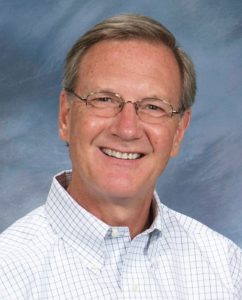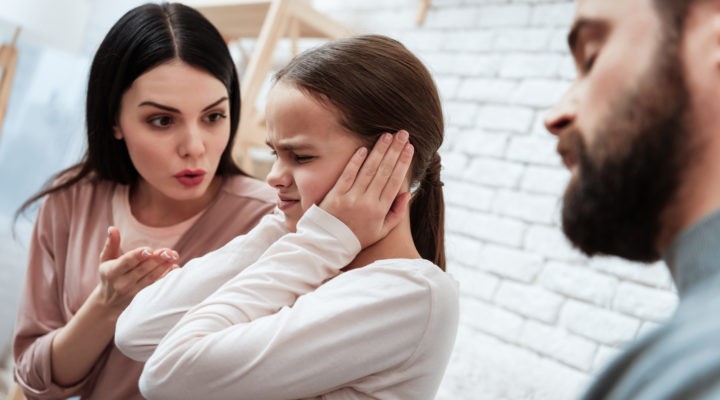Editor’s note: On Aug. 25, Baptist pastor Bob Browning testified before a joint committee hearing of the Kentucky Legislature, speaking in favor of a bipartisan bill in both chambers that would ban state-approved, licensed counselors from using so-called “conversion therapy” on children under 18 or adults who cannot make decisions for themselves. Conversion therapy is the attempt to change someone’s sexual orientation or gender identity through counseling. This is the manuscript of his testimony.
I rise today to voice my strong support for Senate Bill 85 that proposes to ban mental health professionals from using conversion therapy with people under 18 or adults who cannot make decisions for themselves. I have come to this decision after much studying, praying and listening. It is the listening part of this process I wish to focus on this morning.
I have been in ministry for 51 years. I was the pastor of churches in Kentucky and Georgia for 49 years and just concluded an 18-month interim at a church in Lexington. Listening to people has been an important part of my ministry.

Bob Browning
I believe this was true for Jesus, too. His public ministry was built on walking those dusty, Palestinian roads listening to people’s stories so he could understand their struggles and challenges and respond to them with compassion and mercy.
Jesus made hope visible everywhere he went. He restored self-esteem to people who had been hurt by the judgmental and manipulative words and actions of others and helped them chart a more hopeful course for their lives.
I grew to respect the Jesus who went to the broken places and helped those who were dealing with shame, guilt, confusion, disappointment, inferiority, worthlessness, disappointment, fear and anxiety. I marveled at the Jesus who refused to ignore the pleas for help others ignored. I admired the Jesus who endured harsh criticism for being kind to the wrong people.
I wanted to be like him.
I wanted to listen with an open heart and mind as he did. I wanted to discover the struggles and challenges people unlike me faced. I wanted to become aware of their frustrations and disappointments. I wanted to know what their hopes and dreams were.
In other words, I wanted to know what I didn’t know, because I wasn’t in ministry long before I realized putting a name, a face and a story with an issue or decision changes everything. At least it did for Jesus.
So, 50 years ago, I began listening to people.
The first 10 or 12 years, no one talked to me even behind closed doors about their attraction to people of the same sex. That changed in the 1980s.
One by one, people came to discuss this forbidden topic. At first, I was more shocked by who was seeking me out than I was what they were saying. It was some of the community’s finest students and most respected adults. They were smart, industrious, good-hearted, responsible, conscientious, law-abiding citizens.
But they had a secret that was haunting them and did not know what to do about it.
Of course, I’ll not describe details of our private conversations, but I can share with you what I have observed from listening to people attracted to those of the same sex.
“No one has ever told me he or she chose to be homosexual or even bisexual.”
No one has ever told me he or she chose to be homosexual or even bisexual. “I never made a conscious decision to be gay. As I came of age, I always felt an attraction to the same sex,” I heard repeatedly.
At the same time, everyone told me they did their best to conceal their true feelings because they were different and felt dirty. Just about all of them used the word “broken” when they described their condition.
“What is wrong with me?” they asked. “What did I do wrong? Why can’t I be like my friends or peers? I feel like damaged goods. Maybe I will outgrow these feelings. Perhaps a pill will be discovered that will make me heterosexual,” they would say as their voice fell silent.
In order to fit in and to avoid being humiliated and shunned, many frustrated people dated the opposite sex. Some even married. And divorced.
Some turned to God and prayed God would change them. They devoted themselves to becoming more pious in an effort to convince God to change them.
They went to church and even selected a church where the pastor openly condemned homosexuality. They studied the Bible. They prayed and fasted. They read books that dealt with this subject with the goal of discovering what they needed to do to change their sexual attraction. They sought out “reparative therapy” with counselors they believed would help them change their sexual orientation.
“When none of these disciplines achieved the desired results, depression set in or got worse.”
When none of these disciplines achieved the desired results, depression set in or got worse. Their sense of brokenness — shame, guilt and unworthiness — was unbearable.
I listened to people who told me how often they thought about committing suicide. Others described their failed attempts. Tragically, I buried some who were successful. Their level of despair broke my heart.
I wish I could tell you today I no longer have these disturbing conversations because we know more about genetics and DNA and better understand how sexual identity and orientation are developed.
Or we know condemning people for something they did not choose is cruel.
Or we know each time someone who is not heterosexual hears an authority figure condemn them, it pours salt in a wound that never heals.
Or we know promoting a program that can change sexual preference and “make gay people normal” undermines a person’s dignity, value and worth and gives some false hope.
Or we know no one needs to live a lie, a life other than their own.
I truly wish we were further down the road than we are for the sake of those who feel misunderstood and are suffering in silence because they also feel unloved. Instead of talking today about changing someone’s sexual orientation, I wish we were discussing what people who are not heterosexual need from society.
But we are not this far down the road in our state. We must start where we are, which is what I believe supporting Senate Bill 85 does. It sends a message to our gay and lesbian family members and friends that their voices will no longer be ignored.
I am aware this will not be an easy vote for many of you. It will require a high level of compassion and courage. This is why I plead with you to put a name, a face and a story with your decision.
May I leave you with a lesson I learned from Sen. John Sherman Cooper. I was his pastor in his later years and enjoyed my visits with him. We talked about some of the difficult votes he faced in the United States Senate.
More than once his vote was not in line with public opinion back home. “Why did you do this?” I asked. “Because I listened to people and I listened to my heart. Sometimes the people who speak the loudest are not the ones who need to influence us the most.”
Along with others, I spoke at his funeral in Washington and at First Baptist Church in Somerset. I titled the eulogy for this United States Senator, Ambassador to India and East Germany and advisor to several Presidents, “He Made Power a Healthy Word.”
I hope the same will be said of each of you at your funeral.
Bob Browning is a retired Baptist pastor living in Frankfort, Ky. He most recently served First Baptist Church of Somerset, Ky., First Baptist Church of Frankfort, and Smoke Rise Baptist Church in Atlanta. He just concluded an interim pastorate at Calvary Baptist Church in Lexington, Ky.


